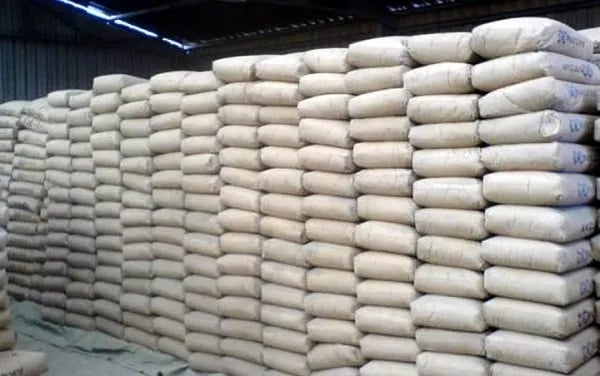The Ghanaian Minister of Trade and Industry, K. T. Hammond, has taken decisive action to regulate the cement manufacturing industry by mandating that all manufacturers secure licenses or cease production immediately. This directive, issued to the Cement Manufacturing Development Committee (CMDC), follows the enactment of the Ghana Standards Authority’s Manufacture of Cement Regulation, 2023 (L.I. 2480). This regulation requires both existing companies to re-register and obtain a license while also prohibiting any new factories from operating without proper licensing. The Director-General of the Ghana Standards Authority (GSA), Professor Alex Dodoo, emphasized the urgency of compliance, highlighting that all cement manufacturing currently underway without a license is deemed illegal and subject to legal penalties.
Under Section 17 of L.I. 2480, manufacturing cement without a license is a criminal offense resulting in imprisonment for a minimum of twelve months to a maximum of two years. Notably, Professor Dodoo pointed out that as of now, no cement manufacturers in Ghana have applied for the required licenses in line with the new legal framework. This lack of compliance is particularly concerning considering the previous absence of robust regulations that governed the cement manufacturing sector. In his remarks, the Director-General stated that the new regulation aims not only to formalize and regulate the industry but also to protect the environment and consumers by ensuring that only high-quality cement products are available on the market.
The new regulatory framework was born out of a necessity to address consumer concerns, particularly regarding rising cement prices, which currently average GH¢105 per bag. By implementing a stringent licensing process, the GSA aims to enhance quality assurance and further regulate where cement can be manufactured. The stringent regulation prohibits cement production in unapproved locations, thus safeguarding both the environment and communities affected by such operations. The ongoing efforts to enforce compliance have been prompted by a surge in the number of manufacturers and a pressing need to uphold quality standards in what has historically been an unregulated industry.
In addition to the licensing requirements for existing producers, the law necessitates that potential manufacturers submit written applications to the Minister, accompanied by a prescribed fee. This formalizes the approach to achieving transparency and oversight within the industry. Professor Dodoo stressed that while the CMDC was established to guide the process of licensing and regulation, the Minister of Trade and Industry would oversee that the regulations are adhered to. The Director-General reaffirmed that L.I. 2480 introduces a comprehensive level of oversight that is both inclusive and transparent, marking a significant shift in the operational norms of cement manufacturing in Ghana.
Furthermore, the GSA has ramped up efforts to combat the proliferation of substandard cement production by unlicensed firms. Ongoing investigations into recent manufacturing practices have unveiled alarming trends, such as the unauthorized use of the GSA certification logo. Last year, three companies operating in the Ashanti Region were shut down due to the use of substandard raw materials in their production. The Ministry has also prohibited the establishment of new cement factories until the licensing regulation is fully operational, a move aimed at ensuring that any new entrants into the market meet established standards and comply with necessary legal frameworks.
Overall, the Ghana Standards Authority, in partnership with the Ministry of Trade and Industry and law enforcement agencies, is confronting structural challenges in the cement manufacturing sector. The lack of robust regulatory oversight in the past has allowed for exploitation and the compromise of quality standards. With the launch of L.I. 2480, there is now a concerted effort to not only instate licensing requirements but also to ensure systematic monitoring that reinforces quality and safety in cement production. The measures announced represent a proactive approach to affirming quality in construction materials essential for the country’s infrastructure and economic development.














